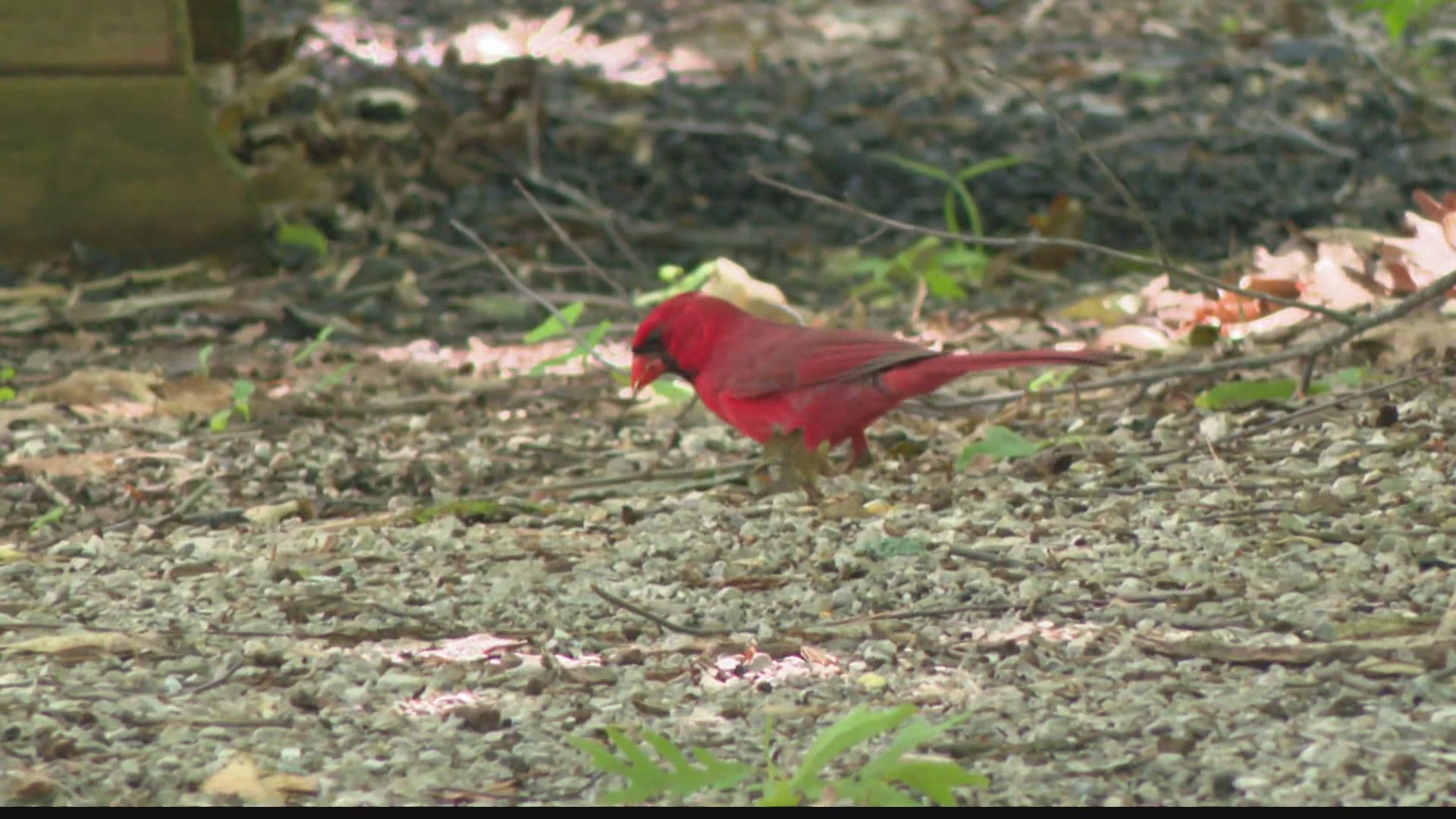INDIANAPOLIS — Note: The above video is from a previous report.
Indiana DNR is able to rule out some possible causes of the mysterious illness killing songbirds around Indiana and other states, but it still does not know the cause.
Through testing, the DNR learned the illness is not West Nile or avian flu. They currently have a dozen samples undergoing extensive testing to try and determine a cause. That testing could take a long time, so prevention and tracking is key at this point.
The DNR said no direct connection to cicadas has been established.
Indiana DNR currently has 285 total confirmed cases of the mysterious illness in songbirds. Its estimates put the number much higher, up to 1,000 cases or more.
"I have not seen songbirds die at significantly large numbers before," said ornithologist Allisyn Gillet, DNR Division of Fish & Wildlife.
The sick songbirds have now been reported in 53 of Indiana's 92 counties and the first reports came in late May. The highest concentrations of reports are in Monroe, Marion, Allen, Kosciusko and Hamilton counties, along with counties near Louisville.
Indiana isn't alone in the illness, similar cases are being reported in Ohio, Kentucky, Pennsylvania, Virginia, West Virginia, Maryland and Washington, D.C.
Symptoms of the illness include: eye discharge or eyes crusted over, neurological problems including tremors and disorientation, swollen up heads and an inability to fly.
The illness is being found primarily in blue jays, robins, cardinals and starlings. Indiana DNR cautions it could be in other bird species as well. Indiana is working with federal and other state agencies, in addition to wildlife organizations.
If someone spots a bird with the illness or a dead bird, they are asked to report it to the DNR here.
Anyone coming across one of the dead birds should double-bag it and dispose with the household trash. You should not touch the bird with your bare hands and instead use disposable gloves or a bag to pick it up.
Pets should be kept away from areas with sick birds or where a bird has died.
People should also remove bird feeders including those with seed or nectar. It will not hurt the birds as DNR says there is plenty of food naturally right now. The hope is that if bird feeders are removed, birds won't be in such close proximity to each other and that will limit the spread.
Bird feeders and baths should be cleaned with a 10% bleach solution, rinsed thoroughly and allowed to dry before being put away inside.

